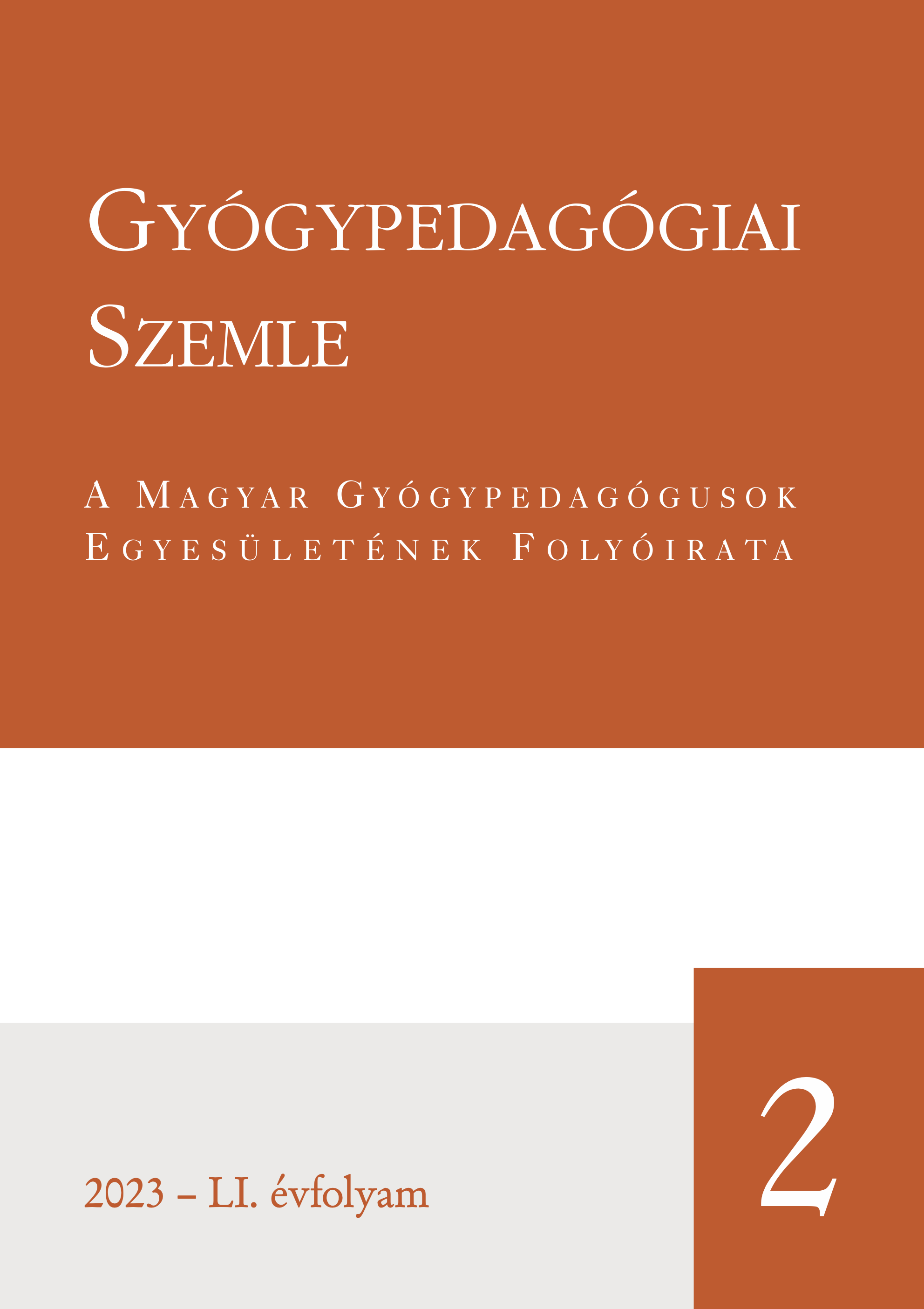Roma representation in the Journal of Special Education 2010-2019
DOI:
https://doi.org/10.52092/gyosze.2023.2.2Keywords:
roma, disadvantage background, integration, multicultural pedagogy, critical discourse analysisAbstract
Background and objectives: The aim of the analysis is to explore the views and the professional’s dialogue - indirectly of special education teachers - on Roma in the Journal of Special Education in Hungary. The importance of this is that special education schools and classes have had a decades-long, prominent role in socially integrating the Roma and students with disadvantaged background. A way to increase social inclusion of the students is reconstruction of their ethnic identity through teaching Roma history and languages.
Method: The examined journal issues are available online in the Hungarian Electronic Periodical Archive, and they were published between 2010 and 2019. The analysis started with quantitative content analysis and followed by discourse analysis of a narrowed down volume – two-two years were compared with each other.
Results: The discourse which come into view is based on the context of socio-cultural disadvantage, where subculture often appear is a risk factor that can lead to deficits in personal abilities. Belonging to the Roma minority, the positive influence of subculture on identity, is not present and therefore cannot be the subject of special education.
Conclusions: Medical (deficit) approach can be observed in the Journal based on the discourse. In other words, special education interventions seek to promote conformity to generalized social norms as a prerequisite of successful integration - thus seeking to counterbalance cultural specificities.
Keywords: Roma, disadvantage background, integration, multicultural pedagogy, critical discourse analysis

